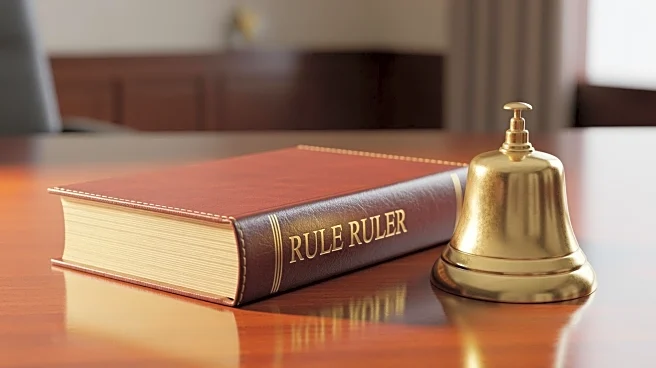What's Happening?
The NCAA has decided to maintain its ban on athletes and athletic department staff betting on professional sports. This decision comes after a vote by the organization's membership to rescind a proposed rule change that would have allowed such betting. The move follows several high-profile gambling scandals, including the arrest of an NBA coach and player involved in illegal gambling operations, and allegations against Miami Heat guard Terry Rozier for using insider information to place bets. Recently, the NCAA revoked the eligibility of six men's basketball players due to sports betting allegations, and former Temple guard Hysier Miller was found to have placed numerous bets on his team's games. The rule change, which was set to take effect
on November 1, was halted after more than two-thirds of Division I members voted against it. This decision also affects Divisions II and III, where betting on professional sports will remain prohibited.
Why It's Important?
The NCAA's decision to uphold the ban on betting by athletes and staff is significant in maintaining the integrity of college sports. With the rise in gambling-related scandals, there is growing concern about the potential for compromised competition and the influence of gambling on sports outcomes. By prohibiting betting, the NCAA aims to protect the fairness of the games and the reputation of collegiate athletics. This decision also reflects the organization's response to increasing enforcement cases related to sports betting violations. The move is likely to reassure stakeholders, including fans, sponsors, and educational institutions, that the NCAA is committed to preserving the integrity of college sports.
What's Next?
The NCAA will continue to monitor and enforce its rules against sports betting among athletes and staff. With ongoing investigations into sports betting violations, the organization may face further challenges in ensuring compliance. The decision may prompt discussions among NCAA members and stakeholders about the future of sports betting regulations and the need for additional measures to prevent gambling-related issues. The NCAA's stance could also influence other sports organizations and leagues in their approach to managing gambling within their ranks.















